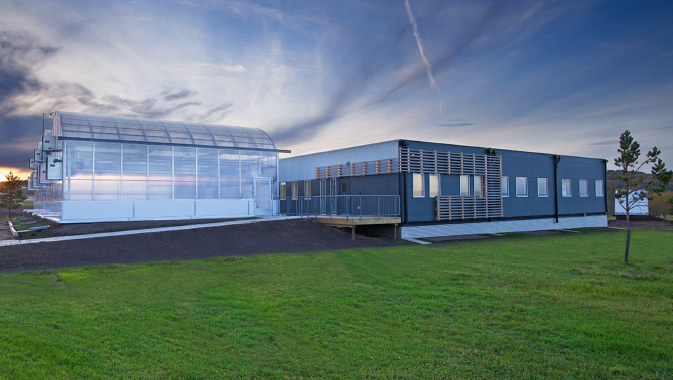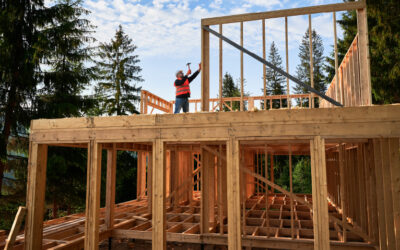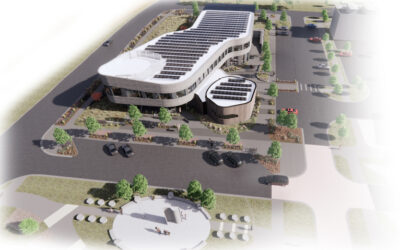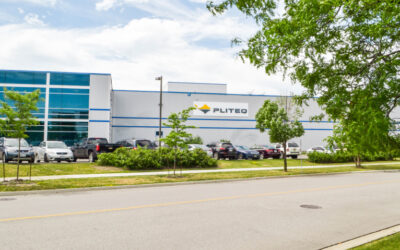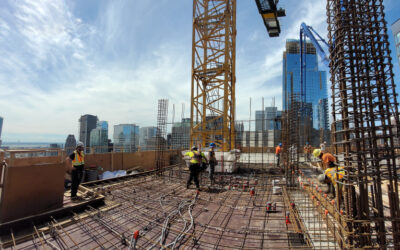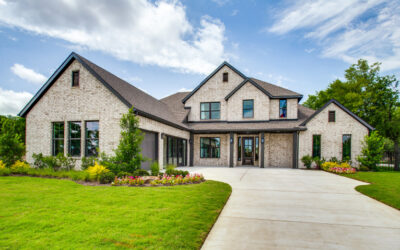Modus Structures provides prefabricated modular building solutions to infrastructure projects such as multi-family residential buildings, offices, quick-serve restaurants, and agricultural production facilities. Modus can also install the products it manufactures to offer a complete turn-key service for any type of modular construction project.
~
There is plenty of room to grow for modular construction in Canada, especially in the west, and Modus Structures feels a responsibility to inform the market about this alternative and demonstrate its advantages. The industry has only scratched the surface of modular construction’s potential. Significant change can take a great deal of time, and old habits die hard.
Modus encourages the idea by educating developers, architects, engineers, stakeholders, and landowners about the opportunity that comes with modular construction. “What we need now is to get more projects in the ground and prove to the world at large that this is a better solution for many different reasons, and we just need to get more stakeholders to embrace it,” says Modus Structures Chief Executive Officer and Director Joe Dotto.
As Modus expands, it works to raise awareness of the benefits of modular building solutions in the general construction market. Canada’s modular construction market makes up less than five percent of total construction, whereas, in Asia and Europe, the percentage of modular buildings is closer to fifty percent of total development. Modular construction has recently increased in the United States, and Modus hopes that it is a good sign for change to come in Canada.
In the past, modular buildings have been associated with a fairly basic design, but Modus has reached success by taking the traditional model and upgrading it to a high-performance, quality building that can be temporary, permanent, or portable. Modus has developed a building system that uses a proprietary structurally insulated panel (SIP) system that it manufactures and has used in diverse industries over the years. The performance from its building system is of a much higher standard than most other systems available and certainly much higher than the typical stick-built, wood-framed building.
Building codes and standards have to take into consideration that there is a vast difference between the two methods of construction. “It all comes down to how things are built, and that’s what we face every day because we do things differently than normal construction. People have to get on board and understand that this is viable, but we might have to change the way of thinking about how things have been done in the past. There’s a better way to do it, but it’s going to look different,” explains Dotto.
Energy efficiency is one of the biggest advantages of modular building, particularly when combined with Modus’ structurally insulated panel system. This construction method is extremely valuable since the overall lifecycle cost of the building is lower. Aside from performance, one of the main advantages of modular construction is speed to market.
The third primary advantage of modular construction is that it replaces the need for a large construction crew at a time when construction companies in North America are experiencing workforce challenges. This shortage of skilled trades and labour has contributed to the success of the modular construction industry. Modus often completes projects in remote locations where labour is impossible to find, and modular buildings are the only option.
The average project of a mid-to-low-rise, multi-family building would take anywhere from twelve to twenty-four months using normal construction methods, but with prefabricated modular construction, that build time can usually be shortened by thirty to fifty percent, which then generates revenue for stakeholders much quicker. For instance, in the hospitality industry, if a hotel can be built in half the time, the overall cost of the building becomes secondary to the profits generated in that period.
Modus is also a leader in the design of agricultural grow rooms for any type of plant, including cannabis. Licensed cannabis producer Sundial Growers works with Modus to create its building system to provide an ideal environment to regulate temperature, humidity, moisture, and other factors that affect growth.
Modus was founded in late 2004 by four partners who had previously been working for another modular construction company. They formed a new company, and since they had already established relationships with clients, Modus had orders for work before it was even an established company. The team increased its modular building design portfolio and expanded into the market in a way that the previous company had not been able to do.
The company is based in Crossfield, Alberta, and its services reach across Canada, although mostly in the west, from British Columbia to Manitoba. Modus has not done any work in the United States to date, but it will consider doing so in the future.
The 140 people employed by Modus make up a collaborative group in which everyone feels as though their input is valued. When an employee has an idea about how to improve efficiency or quality, Modus is very receptive and encourages them to look out for areas that could use improvement.
Within the modular space, Modus sets itself apart with both its proprietary building system and its flexibility as a company. It builds with a variety of materials, not limited to wood, steel, or insulated panels, and it works on projects in diverse markets. In the past, particularly in Alberta, the oil and gas industry drove most of the modular construction, and that is where many companies directed their focus.
As the oil and gas industry diminished, those companies began to go out of business, but Modus has pledged to remain diversified to avoid the same fate. “We’re not a one-trick pony; we can operate in a number of different mediums and different markets, and that’s why we’re still here today,” says Dotto. “There are many legs on this stool that we can rely on, and the diversification that we have is what will allow us to succeed moving forward.”
Being located in a small town in rural Alberta, Modus always tries to help the community in any way it can. It does much work with the schools in town and considers this to be great investment in the future of Alberta. Modus recently sponsored the University of Calgary Dinos basketball team. Joe Dotto recognizes that athletics build a strong foundation for success and the company is excited to be a part of the team’s journey.
Modus is mindful of its environmental responsibility and continuously searches for new ways to improve the already-efficient nature of modular construction. “With modular, there is less waste, and we can control the materials we use much better. The efficiency is much higher, and the environmental footprint is much smaller versus standard construction,” says Dotto.
Modus is coming up on its fifteenth anniversary, and in the years to come, it plans to continue to expand the reach of modular construction while raising awareness about its usefulness in today’s world in a range of markets. “We have not reached the limit, and there is still a lot that can be done, so outside of our business goals, our number one goal is to build our market and just to keep educating and keep expanding the role of modular in the construction world.”

